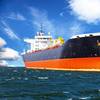IMO has joined with a host of other United Nations agencies and leading international scientific bodies in developing the first comprehensive real-time tool to assess the state of world's oceans. The Internet-based United Nations Atlas of the Oceans was launched on World Environment Day June 5, 2002 at a meeting of the Intergovernmental Oceanographic Commission of UNESCO (United Nations Educational, Scientific and Cultural Organization) in Paris, France. More than 2½ years in development after a decade of planning, the Atlas of the Oceans represents the most ambitious global scientific information collaboration ever on-line and an international consensus-building tool expected to assist negotiations of future marine-related agreements.
The project partnership includes: the Food and Agriculture Organization of the United Nations (FAO), the International Atomic Energy Agency (IAEA), International Maritime Organization (IMO), United Nations Environment Programme (UNEP), World Meteorological Organization (WMO), the United Nations Division for Ocean Affairs and the Law of the Sea (UNDOALOS) and the Intergovernmental Oceanographic Commission of UNESCO. The FAO led the initiative, with principal funding of $500,000 from the United Nations Foundation.
Collaborators include the Russian Head Department of Navigation and Oceanography (HDNO), and the United States National Oceanic and Atmospheric Administration (NOAA), which in addition to providing information, seconded Dr. John Everett as Project Manager and provided support staff and funding.
The Atlas is designed for a complete cross section of potential users – from schoolchildren to policy-makers needing to become familiar with ocean issues, to resource managers needing access to underlying databases.
The website will be supplemented by a CD-ROM to make much of the information accessible in regions where Internet access is difficult. There are also plans for a printed version.
More than 350 topics are currently covered with 17 founding editors. More topics and 400 - 500 designated topic editors are set to be added over time.
For the public, policy makers, scientists, resource managers, the media, Non-Governmental Organizations, educators, students and other stakeholders, the Atlas will be an encyclopaedic resource offering instant access to strategic data on the state of ocean resources, development trends, maps and threats to human health from the deteriorating marine environment. It will also serve as the world’s foremost information clearinghouse and online forum for experts in ocean issues.
Project Director Dr. Serge Garcia, Director of the FAO Fisheries Resources Division, said the Atlas “enhances the world’s ability to form partnerships, to share and pool information with all regions of the world, including the least developed ones, greatly benefiting all nations concerned about sustainable use of the oceans."
The United Nations Atlas of the Oceans organizes information according to general subject areas:
· Uses – disposal of waste from land, energy, fisheries and aquaculture, human coastal settlements, marine biotechnology, non-consumptive uses, ocean dumping and ship wastes, offshore oil, gas and mining, recreation and tourism, and transportation and telecommunications.
· Issues – climate variability and climate change, economics, emergencies, food security, governance, human health, pollution and degradation, safety and sustainable development.
· Background – including biology and ecology, how oceans were formed and how they are changing, monitoring and observing systems, and maps, statistics and online databases
The United Nations Atlas of the Oceans goes live at http://ww.oceansatlas.com/index/jsp
Sponsored Content
Anschuetz USA: Supporting the U.S. Maritime Industry

Maritime leaders unite to tackle ocean plastic with launch of new alliance: the Maritime Association for Clean Seas

December 2025
 Read the Magazine
Read the Magazine

 Read the Magazine
Read the Magazine
This issue sponsored by:

The Compliance Crunch – Preparing Mariners for New Waves of Reporting
Subscribe for
Maritime Reporter E-News
Maritime Reporter E-News is the maritime industry's largest circulation and most authoritative ENews Service, delivered to your Email five times per week










